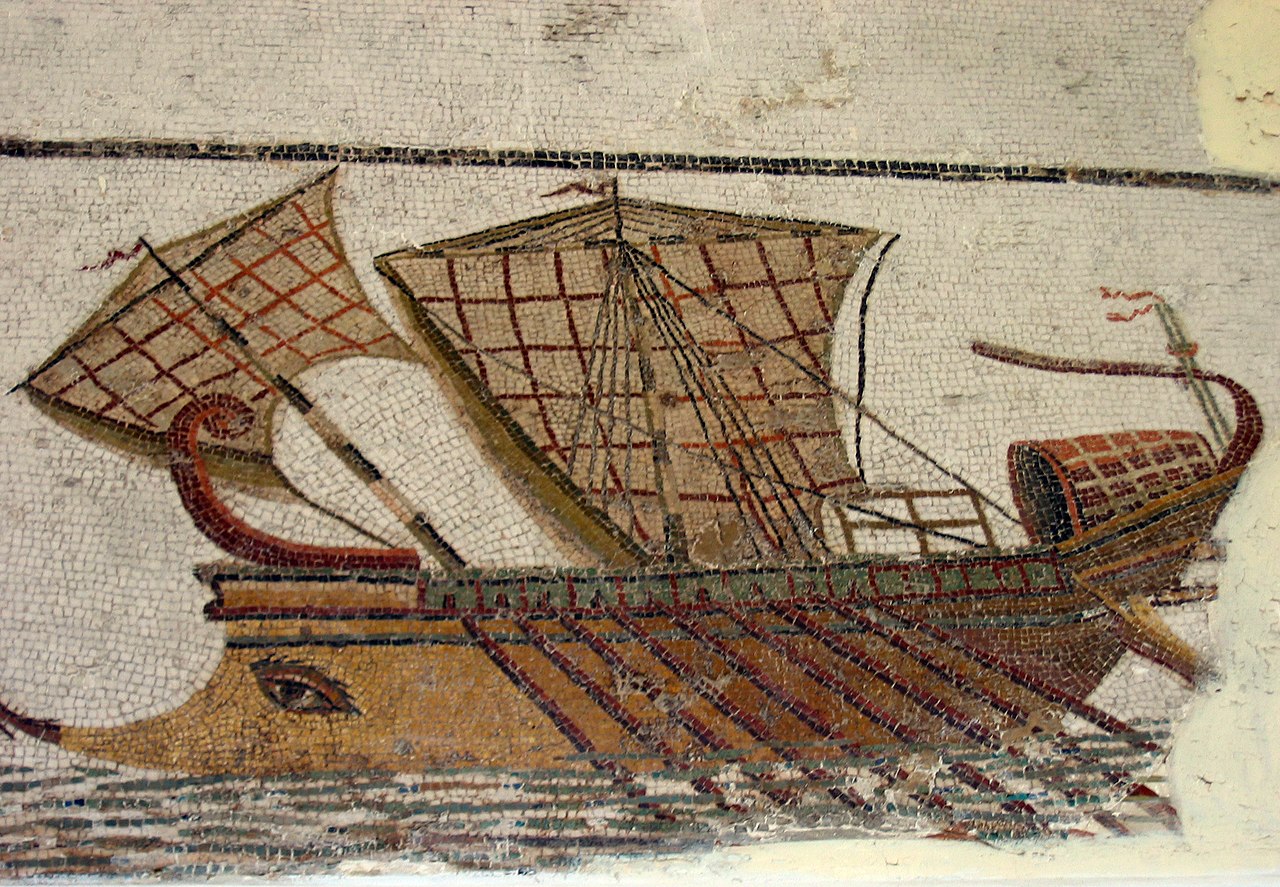 ou probably have an app for this, but back in the day money transfers were not so simple. Spare a thought for how difficult and risky it was to move money in the ancient Roman Republic. No cake walk, let me tell you. Travel in the ancient world was notoriously dangerous and fraught with physical problems that we don’t even consider today. Moving money, literally in boxes, was an added risk in a world where banditry, piracy and unpredictable weather were all common.
ou probably have an app for this, but back in the day money transfers were not so simple. Spare a thought for how difficult and risky it was to move money in the ancient Roman Republic. No cake walk, let me tell you. Travel in the ancient world was notoriously dangerous and fraught with physical problems that we don’t even consider today. Moving money, literally in boxes, was an added risk in a world where banditry, piracy and unpredictable weather were all common.
Cato the Younger returned the Royal treasury of Cyprus to Rome in 56BCE. Cato was returning with all the loot after a special mission as pro quaestor to the island. Rome was pretty adept at transferring other peoples shiny things back to Rome. Yet even mighty Romans encountered some logistical problems.
Cato, paranoid about losing the money overboard (in a storm or pirate attack) devised an ingenious system to protect the treasure at sea:
”Cato got together nearly seven thousand talents of silver, and fearing the long voyage home, he had many coffers provided, each of which would hold two talents and five hundred drachmas, and attached to each of them a long rope, to the end of which a huge piece of cork was fastened. This, he thought, in case the vessel were wrecked, would hold to its deep mooring and indicate the place where the treasure lay.”
Plutarch, Life of Cato the Younger, 38.1
Talk about a buoyant economy! This was an ingenious Roman solution in a period long before fancy floatation devices.
[If you even go looking online today, you will find loads of modern high tech floatation devices, designed for this common maritime scenario. With all the many *foreign* oligarchs today crowding around havens like Cyprus, keeping your loot afloat is still big business even to this day.]
Cato was successful in getting the Cypriot Royal treasure back to Rome.
However, the journey was not without challenge, and highlights some of the random challanges of the age.
If your an accountant, don’t read this next bit, you wont like it:
“Well, then, the money, except a very little, was safely transported; but although he had the accounts of all his administration of the estate carefully written out in two books, neither of these was preserved. One of them a freedman of his, Philargyrus by name, had in charge, but after putting to sea from Cenchreae he was capsized and lost it, together with his cargo; the other Cato himself had safely carried as far as Corcyra, where he pitched his tent in the market-place. But because it was so cold the sailors built many fires during the night, the tents caught fire, and the book disappeared.”
Plutarch, Life of Cato the Younger, 38.3
So, one set of Royal account books sank and the other got burned by overly exuberant sailors! Some might wonder: was this the Roman equivalent of ‘the dog ate my homework?’
Cynics might view these excuses as being straight out of the Gaius Verres* playbook of dodgy provincial governorship.
Perhaps.
Or were these just the risks of ancient travel, which was notoriously dangerous, even for elite and powerful Romans?
Few men but Cato the Younger – a paradigm of ‘old-school’ Roman virtue – could pull-off losing account books of the Royal treasury of Cyprus.
As it stood, Cato’s reputation for honesty was, of itself, the ‘gold standard’. Though he didn’t always get invited to parties – far too puritanical – all factions at Rome trusted Cato as beyond reproach. On his return he was commended by the Senate. The notion that Cato could ever cheat at anything was just not feasible.
So that’s how the Cypriot treasure transfer went down in 56 BCE. A bit of an accounting anomaly, but no real dramas. It all got signed off in the end. We know how these things go, Cato’s reputation and Roman propriety itself, was too big to fail.
— — —
*Gaius Verres was arguably the most corrupt provincial governor in Roman history. A ‘bounder’ of the highest order, even other dishonest Romans had to draw the line at his outrageous schemes of provincial theft, murder and extortion. He pretty much ran his province of Sicily into the ground, defrauding both the state and the provincials terribly. Bad to the bone, he was a real bad apple.

A contributing writer and researcher, living in Melbourne, Australia. Colin currently writes across a range of creative non-fiction topics. Originally from Scotland, Colin studied Ancient History and Civilizations before completing an MLitt (distinction) in Roman History from the University of Newcastle. Focusing on ‘Slave, Bandit and Pirate Disorders’ within Roman Italy, he developed interests in the personal security habits of Romans. Colin also has expert knowledge in a wide range of topics that include military, politics, architecture, society and social issues. Colin has a growing number of articles that have been published digitally and in print magazine.





